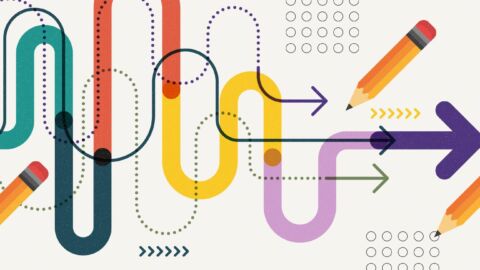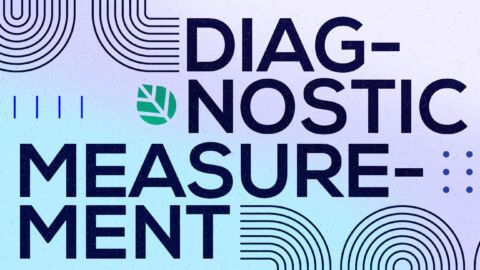
Redistributing Responsibility for Teachers’ Assessment Literacy
Understanding assessment and using it well should be the responsibility of the entire school community, not just its teachers.
Read More
Understanding assessment and using it well should be the responsibility of the entire school community, not just its teachers.
Read More
Guidance on defining and assessing analytical thinking, a skill that’s increasingly important to students’ future success.
Read More
Education leaders and vendors claim that many assessments are “instructionally useful.” Such claims must be highly specific, and supported by evidence.
Read More
Which kinds of tests provide information that helps teachers adjust their instruction? We outline 10 key features of instructionally useful assessments
Read More
The concept of “strategic abandonment” sheds light on the appropriate uses of commercial interim assessments. Instructional utility isn’t one of them.
Read More
Before launching a project to build an “innovative” assessment for education, it’s wise to define what you want to move toward—and away from.
Read More
Like other 21st century skills, ethical thinking presents substantial challenges to educators who want to define, teach, and assess it.
Read More
Guidance on defining and assessing creative thinking, a skill that’s increasingly in demand among employers.
Read More
How my bicycle paceline taught me the seven things teachers need most in their professional learning communities.
Read More
Choosing local assessments can be tricky. A new guide walks district leaders through the questions they should ask and the evidence they should request.
Read More
We use a lot of assessment names—formative, interim, benchmark—without agreeing on their meaning and use. The cost? Public understanding and student learning.
Read More
André Rupp provides answers to frequently asked questions about four aspects of diagnostic classification models in K-12 education.
Read More
Policymakers and educators should have guidance to make sense of why different assessments can yield such different results.
Read More
Discussing how digital tools, when implemented correctly, can help educators and school officials make informed decisions about how to support student learning.
Read More
Formative assessment implementation can be both impeded and facilitated, and we take a look at the factors that play into each outcome.
Read More
A blog post from one of our interns presents a framework for improving classroom assessment practices.
Read More
Clear communication is a requirement of effective assessment design and use, but outside factors can often muddy the waters and cause confusion.
Read More
We’re offering 23 professional classroom assessment learning modules, an expansion of 7 modules offered at the beginning of the pandemic.
Read More